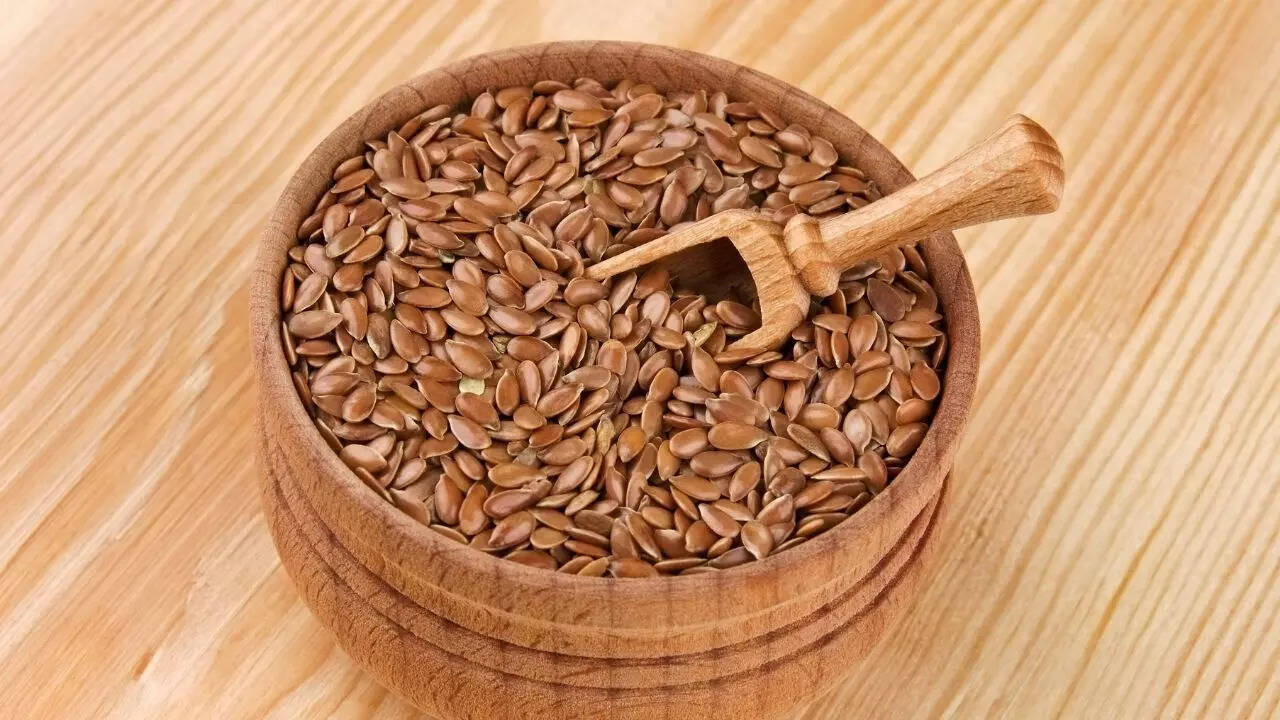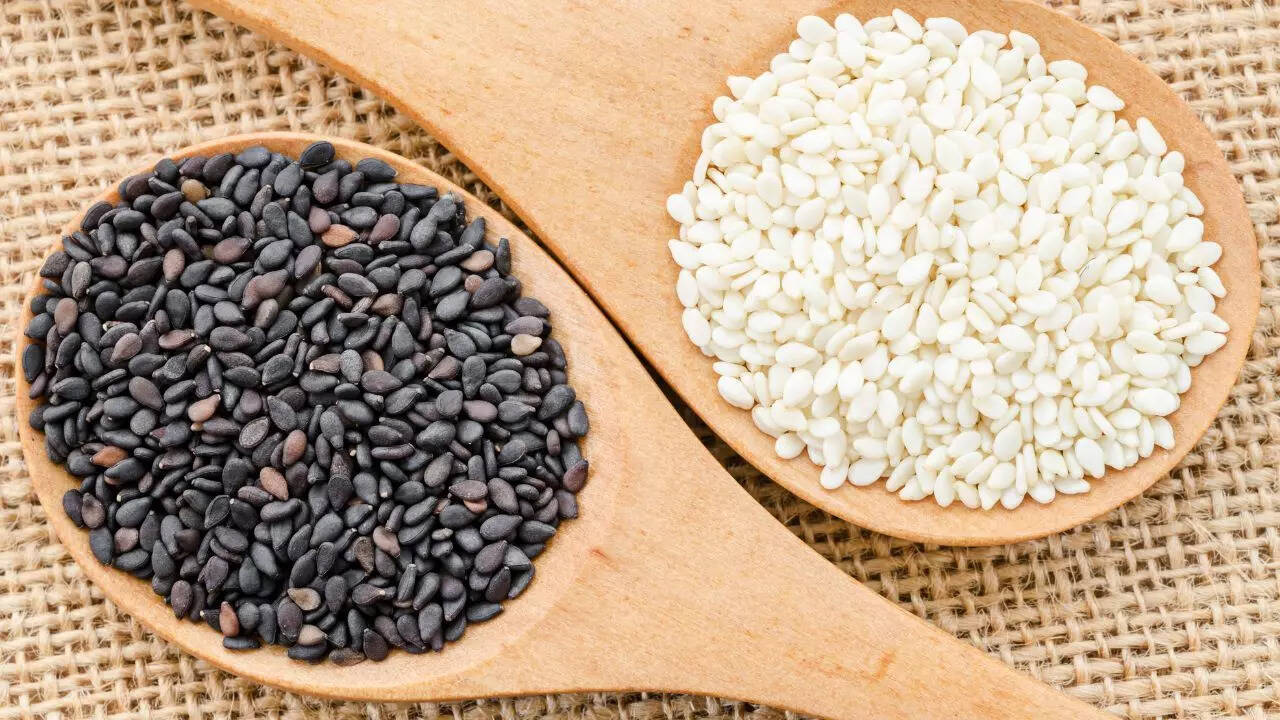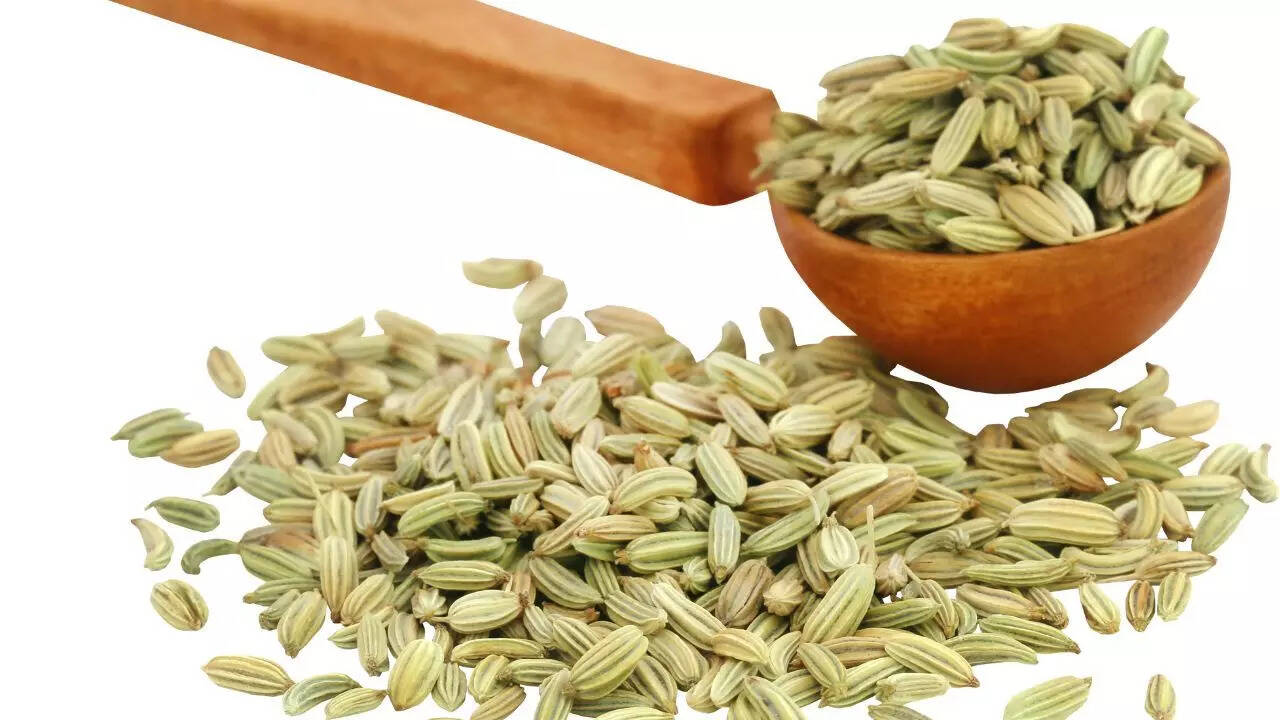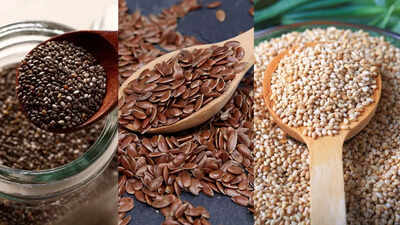Seeds may be tiny, but they pack a remarkable nutritional punch, making them essential for supporting gut health and overall well-being. Commonly included in daily diets for their fiber, healthy fats, vitamins, and minerals, seeds like chia, flax, sesame, and fennel offer far more benefits when consumed at the right time. According to AIIMS-trained gastroenterologist Dr. Saurabh Sethi, the timing of seed intake plays a crucial role in determining how efficiently the body absorbs their nutrients and how effectively they support digestion. Aligning seed consumption with natural digestive patterns can enhance their impact, promote better bowel regularity, appetite control, and energy levels, and help maximize their positive effects on long-term gut health and overall wellness.
Why chia, flax, sesame and fennel seeds are essential for gut health
Seeds like chia, flax, sesame, and fennel are packed with fiber, healthy fats, vitamins, and minerals, all of which support the digestive system. Soluble fiber in seeds slows digestion, helping stabilize blood sugar levels and providing sustained energy throughout the day.
Moreover, seeds can help reduce inflammation, promote bowel regularity, and improve nutrient absorption, which are critical factors for a healthy gut. By consuming seeds strategically, you can enhance their positive impact on digestion, satiety, and long-term health.Incorporating chia, flax, sesame, and fennel seeds into your diet can significantly improve gut health, but understanding timing, soaking, and portion sizes is key. Consuming these seeds at the right time ensures optimal nutrient absorption, digestive comfort, and long-term wellness.


Best times to consume chia, flax, sesame, and fennel seeds for optimal gut health
In a recent Instagram video, Dr. Sethi explained the best times to consume seeds for maximum gut benefits:
- Chia seeds: Best consumed in the morning or before a workout. Their soluble fiber slows digestion and stabilizes blood sugar, supporting energy levels and appetite control.
- Flax seeds: Ideal for morning consumption, preferably in a ground form. They help reduce gut inflammation and improve bowel regularity.
- Sesame seeds: Best eaten with dinner, as they contain calcium and antioxidants that enhance bone health and support overnight tissue repair.
- Fennel seeds: Recommended after meals, as they relax gastrointestinal muscles, relieving bloating, gas, and indigestion.
Timing seed consumption aligns their natural properties with the body’s digestive patterns, enhancing absorption and comfort.


How timing affects seed benefits
The benefits of seeds can vary depending on the time of consumption:
- Flax seeds in the morning: Contain omega-3 fatty acids and soluble fiber, which improve metabolism and promote regular bowel movements.
- Sesame seeds at dinner: Their calcium, magnesium, and antioxidants support bone repair and oxidative stress reduction during sleep.
- Fennel seeds after meals: Aid digestion by relaxing GI muscles and reducing bloating, supporting nutrient absorption.
- Chia seeds in the morning: The mucilage content increases satiety, helping prevent overeating and stabilizing energy levels throughout the day.
Aligning seed consumption with natural digestive cycles enhances their effectiveness and minimizes potential discomfort.
Recommended daily portions for gut-friendly seed intake
Moderation is crucial when incorporating seeds into your diet. A safe daily intake is typically 1–2 tablespoons per type of seed, providing fiber, healthy fats, and micronutrients without overloading the digestive system.Overconsumption can lead to bloating, gas, constipation, or even interfere with mineral absorption in some people. Even nutrient-rich seeds like chia, though naturally gluten-free and vitamin-rich, can cause digestive discomfort if eaten in excess. Seeds should complement a balanced diet rather than replace other food groups.
Role of soaking seeds for better digestion
Dr. Adithya V. Naragund, senior consultant in GI & HPB Surgery at Cytecare Hospitals, Bengaluru, explains that soaking seeds like chia or basil significantly improves digestion. Soaking softens their outer layer, activates beneficial enzymes, and makes nutrients more bioavailable.For example, chia seeds soaked in water absorb up to 12 times their weight, forming a gel-like substance called mucilage, which aids digestion and promotes satiety. This gel gently coats the stomach, preventing irritation and supporting smoother bowel movements.Soaking seeds in the morning is especially effective because the gut is more receptive to hydration and fiber after fasting overnight, ensuring optimal digestion and nutrient absorption.Disclaimer: This article is for informational purposes only and reflects expert opinions. Consult a qualified healthcare professional before making any changes to your diet or seed intake.Also Read | THIS food rich in Vitamin D can boost your immunity, strengthen bones, and improve overall wellness











